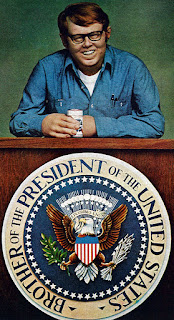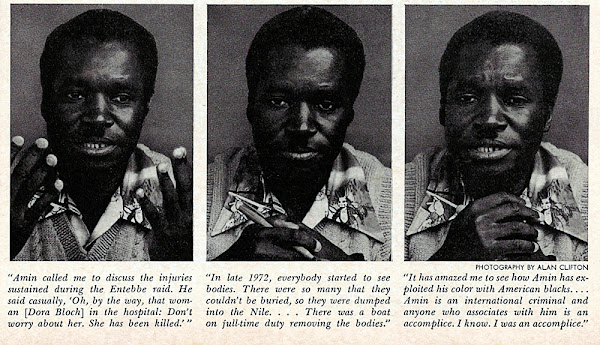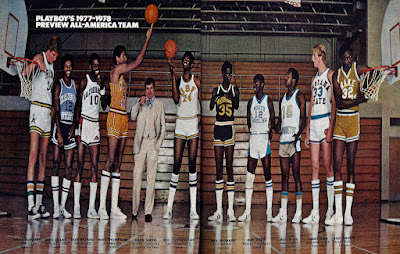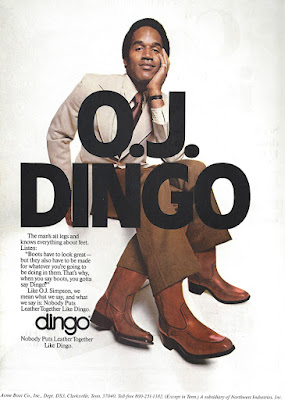Highlights: sigh. Okay, I will confess that this specific issue is the one that put the idea of revisting these old back issues for the editorial content into my mind. I mean, Billy Carter? The ultimate 1970s D-list celebrity scored a coveted Playboy interview? That. Is. Astonishing. My first decade of life was lived through the 1970s, and I remember Billy Carter as the president's idiot brother who went broke with a beer company. Neither of which, in hindsight, are true. A little digging revealed that Billy never ran a beer company, he only endorsed a novelty brand at one point. And he wasn't in the craft brew vanguard, either--he drank Pabst because it was cheap, and would happily trade that for anything cheaper. He also graduated from Emory, which isn't exactly a diploma mill. Back in the day, Billy earned a reputation as a type of redneck sage, bluntly telling it like it is with back country wisdom that left those on the receiving end steaming over his lack of diplomacy. In reality, I think Billy was just a mean drunk. He eventually went into rehab but only a few years sober cancer claimed him.
None of which is in the Playboy interview. Because there is no Playboy interview. In a duplicitous bait-and-switch, Playboy offers an article on Billy Carter, a cobbled-together hodgepodge written by Roy Blount Jr., vignettes and sound bites taken from a dozen different appearances by Billy and snatches of conversations with his family. The cover certainly doesn't promise a formal interview, but that is absolutely implied--especially given the fact this issue hit the newsstands exactly one year after the issue featuring brother Jimmy Carter's famed interview. It's a cheap stunt, is what it is, one that only reenforces the perception of Billy as cross between backwoods truth-teller and bumpkin beer-swiller. By the end, there's barely any new insight into his character than what we began with, although the following section began to approach something of substance:"When did you get over being prejudiced?" I asked him the first time we talked. I assumed that he had gotten over it, since Miss Lillian and Jimmy said they had and since Billy had sued the members of the public school board to try to require them to send their children to public schools instead of to priveate segregated schools. "I'm still prejudiced, I guess," he said. "It would still bother me for my daughter to marry a black man." ... Billy undoubtedly makes a point of avoiding anything resembling a lofty liberal pronouncement. After I got to know him better, though, he confided, "You're the first one I've ever told this. Why I left the city council. I ran in the first place to change the vote against me getting a beer license. I won and got the license and then I told everybody I was going to run again. So nobody else qualified against this black man. He was running for my post and everyone figured I'd beat him. The, when it was too late for anybody else to qualify, I withdrew and he got on. It was a flim-flam deal. I figured it was time the blacks got some representation."Wow. I wouldn't consider that ethical behavior, but it is... interesting. My take is that Billy was more self-aware than he liked to admit. He wasn't able to overcome his ingrained racism on a personal level, give or take, but made efforts to overcome it on a societal level. If nothing else, he marched to the beat of his own drummer. Which brings us to the actual interview in the issue, with Henry Kyemba. He's not exactly a household name these days, but at the time had freshly defected as a cabinet member from the brutal, murderous regime of dictator Idi Amin in Uganda. The interview is harrowing, to say the least:
Playboy: When did it become apparent that Amin's killings were not individual cases but mass murder? Kyemba: That was not until late 1972 Playboy: And you started to see bodies at that stage? Kyemba: Everybody started to see bodies. There were so many that they couldn't be buried, so they were dumped into the Nile. The main road that connects Kampala and Jinja passes over the River Nile. Thousands of people passed that place every day. Time and again, you would find bodies floating down from the source of the Nile, through the dam, and piling up in the still waters on one side. There was a boat on full-time duty removing the bodies. You would find people physically lifting those rotten, ballooned-out bodies from the river. Playboy: Why do you think they were thrown into the river rather than into the lake? Kyemba: That was one of the stupid things that Amin's boys did. Obviously, they thought that by dumping them into the river they would be eaten quickly by the crocodiles. They did not realize that once they dumped the bodies in such numbers, the crocodiles could not eat them all. Nor did they think that the bodies would be floating, all puffed up, to the surface. I saw bodies that were left on the riverside for days, because people became hardened to the sight. Then Amin announced on the Ugandan radio that all those bodies must be removed by teh police as soon as they appeared. He accused the police of being lazy because they were not removing them fast enough!
Other thoughts: This issue contains Playboy's inaugural college basketball preview, accompanied by a ridiculously distorted two-page spread of the 1977-78 pre-season All-American team. I mean, what were they thinking to elongate the photo to make the already-tall players look taller? I mean, that's something a high school newspaper would do. It is interesting to note a very young Larry Bird second from the right, long before his glory years with the Boston Celtics. The pre-season top 10 is mostly a mix of the usual suspects with a couple of outliers sprinkled in for interest: 1) North Carolina, 2) Kentucky, 3) San Francisco, 4) Marquette, 5) Purdue, 6) Arkansas, 7) Kansas State, 8) Alabama, 9) Minnesota, 10) Notre Dame.
Finally, this ad. Jesus H. Christ on a pogo stick, what the hell is going on with this ad? This is the stuff of nightmares, people. Is there any doubt why Dingo boots pretty much came and went with the 70s? The only good thing I thing I can say about a magazine that contains an interview focused on Idi Amin and an ad featuring a three-legged O.J. Simpson is that both of the men in question are now dead. I suppose that is unkind to Simpson, as the evidence would suggest that he killed fewer people that Amin. Now Playing: Violent Femmes Why Do Birds Sing?Chicken Ranch Central






No comments:
Post a Comment